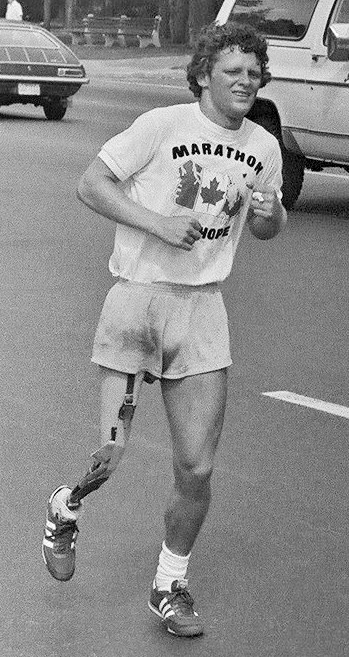
Introduction
Terry Fox is a name that resonates with courage and determination across Canada and beyond. His Marathon of Hope, initiated in 1980, aimed to raise funds for cancer research after losing his right leg to the disease. Fox’s remarkable story not only ignited a national movement but also left an enduring legacy that continues to inspire individuals to advocate for cancer research and awareness. Understanding his journey is not only a reflection of one man’s bravery but a testament to collective efforts towards eliminating cancer.
Terry Fox’s Journey
Terry Fox was diagnosed with osteosarcoma at the age of 18, which led to the amputation of his right leg. During his recovery, Fox became acutely aware of the challenges faced by cancer patients and the lack of funding for research. This inspired him to embark on a cross-country run to raise awareness and funds for cancer research. He began his Marathon of Hope in St. John’s, Newfoundland, on April 12, 1980, with the goal of running across Canada. With the support of numerous volunteers, he ran approximately 143 days and covered over 5,373 kilometres (3,339 miles) before his declining health forced him to stop the run on September 1, 1980, in Thunder Bay, Ontario.
The Impact of His Legacy
Although Terry Fox passed away on June 28, 1981, his legacy lived on through the Terry Fox Foundation, which was established to fund cancer research in Canada. To date, the foundation has raised over $800 million for cancer research, significantly contributing to advancements in the field. The annual Terry Fox Run, held in September, is a global event that encourages participants to support cancer research, uniting communities in the spirit of Fox’s original mission.
Continuing the Fight Against Cancer
Recent advancements in cancer research funded by the Terry Fox Foundation include significant breakthroughs in personalized medicine and immunotherapy, which have changed treatment paradigms for various cancers. The foundation continues to support emerging researchers and innovative projects that aim to further reduce cancer fatalities. The ongoing fight against cancer exemplifies the need for collective action and the influential role that one individual’s determination can have on society.
Conclusion
Terry Fox’s story serves as a beacon of hope and resilience, inspiring new generations to contribute to the fight against cancer. His commitment to research and awareness stands as a crucial reminder of the importance of community involvement and philanthropy in eliminating cancer. As we remember Terry Fox, it is vital for Canadians to continue supporting initiatives that advance cancer research, ensuring that his legacy endures in the hearts of many.



